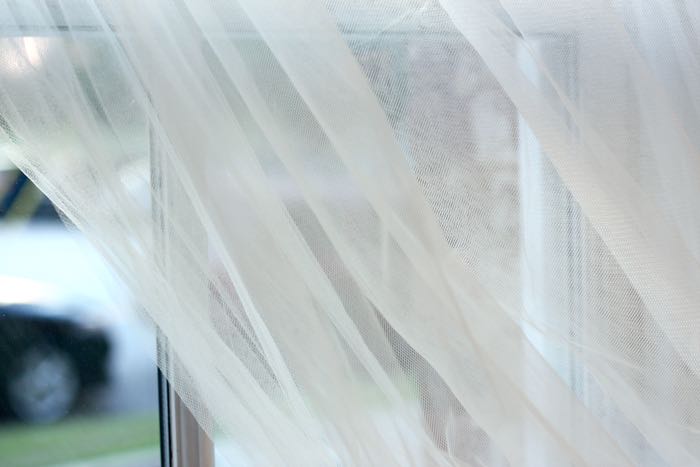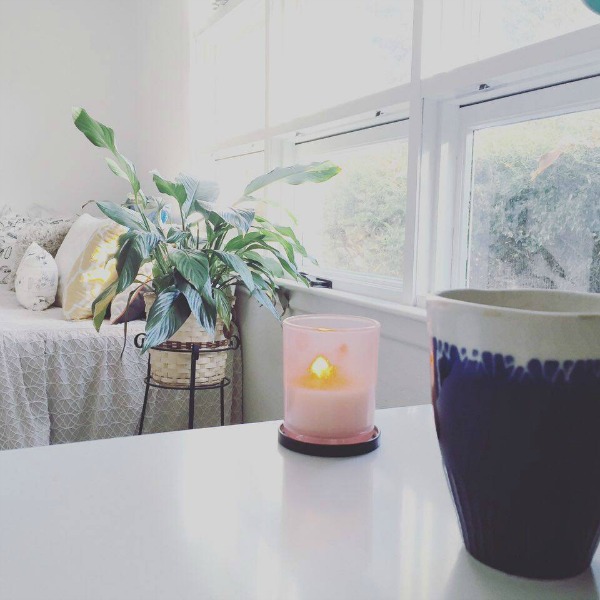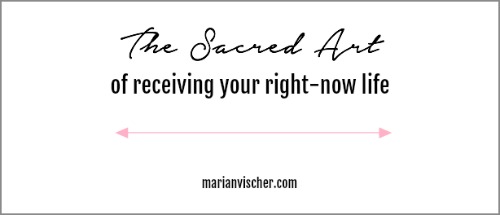
Do you ever feel like certain seasons are defined by weariness?
- the mental and physical weariness of your own everyday life
- the emotional weariness of living in a cruel and tragic world
- the personal grief and private trials of your own small life
We’re only two months into a new year but I write from a place of utter weariness. It’s been a long year already.
I lost my friend to cancer almost three weeks ago.
She was my own age – a wife, a mom to 3 kids, a beloved Kindergarten teacher. We lived next door for 10 years, raising our kids on communal popsicles and sharing so much of life together.
I’ve been working on this post in fits and starts for two weeks, writing from a place of grief and all of its accompanying friends – fatigue, confusion, and weepiness that comes out of nowhere. I wish I was a child who could be sent to time out. For like, 4 weeks.
There are still mouths to feed and work to do and decisions to make, and this is a good thing. But I go through these everyday motions with a heaviness I can’t shake off.
It’s not an unfamiliar place. Just over three years ago, I lost another dear friend to cancer – a wife and mom in her 40s, a devoted college professor, the most loyal friend.
Loss has a way of refining our truest priorities, doesn’t it?
A year and a half ago, my grandmother’s death reoriented me in ways I didn’t know I needed. The words I read at her funeral began my journey of receiving my right-now season of life even though it meant letting go of a hoped-for dream, of learning to see limitations as gifts instead of liabilities.
But this is a lesson I am slow to learn.
There’s nothing like losing two women your very own age to force you to examine what you want your own life to be about, especially when they’ve loved you and others generously.

///
I had a difficult conversation with my husband recently. It didn’t start out as a speak-the-hard-truth sort of talk; it really just began as an apology. But we can’t always predict where our words will lead and this particular exchange landed me in a painful place. I’d been operating from a know-it-all place of entitlement and expectation. I could see exactly what the issues were and guess what? I wasn’t the problem.
Except that I was, in fact, a very big part of the problem.
This is marriage. Nothing happens in a vacuum; we’re both wrong and also right. But in this case, grace showed up and allowed me to receive the hard truth, to hold it up to the light and discern a thing or two.
Here’s the paraphrased version:
We loved each other almost immediately. Back then, I knew how to live fully and freely in the moment, to laugh long and hard and easy. I was audacious and optimistic and brimming with love. But that person doesn’t come around much anymore. It’s sad and frustrating to be with someone you don’t much recognize, to miss the person you fell in love with.
He reminded me that I know all too well what that’s like. And I do. For a long season, I didn’t recognize him either. By grace, God brought him back, but I know what it’s like to miss someone even though you both still live under the same roof.

Then he said something that I can’t stop thinking about:
I don’t care if you never put another meal on the table. What matters to me and to the kids is the person you are when you’re with us. And we’re all walking on eggshells around here.
Happy times.
The drama of our life together is one for the books. We are a marriage of redemption, partially because we’ve given God so much material to work with. At first, I resisted the truth he spoke because I wanted to blame him for my own stressy demeanor that has apparently had everyone treading so lightly.
But he spoke those painful words in love and I knew he was right. The truth is, I’ve missed myself too.
///
I know what you may be thinking: What does any of this have to do with rest and self-care?
I’ll tell you what. I have not been living within my means.
What’s the secret to practicing self-care in the midst of your crazy, right-now life?
Learning to recognize and receive your own limitations.
When I don’t live within my means, I don’t live a life defined by love. I live a life defined by stress, anxiety, worry, and control. I am not kind or patient with those I love most.
Simply put, I’ve increasingly stretched myself too thin. I’ve said yes when I should have said no. I’ve been so busy tending to the immediate and the urgent that I’ve neglected the important. I’ve chosen agenda over relationship. I’ve tried to be my own savior and other people’s too. I’ve let fear have its way with me. I’ve brewed extra coffee instead of taking a nap.

I’ve learned these lessons before and I should know better. I’ve read Essentialism for crying out loud. But living beyond our means doesn’t happen all at once.
Step by step, I’ve slowly crept into the rolling fog of overwhelm until I could no longer see clearly. I’ve been blind to my own sin and lack of love, blaming others for my woes — spouse, kids, circumstances I didn’t deserve.
Which brings me back to the beginning of this post. What do I want my life to be about?
Love.
I want to live a life defined by love.
///
Jesus said that the second greatest commandment (after loving God with all that you are) is loving your neighbor as yourself. We tend to zero in on the “neighbor” part of that verse, while ignoring an implicit truth.
To know how to love others, we need to know how to love ourselves.

This is the trickiest of truths to unpack, partially because our culture paints “loving yourself” into some sort of Real Housewives caricature of personal indulgence. That’s not the sort of loving yourself I’m talking about. That’s just narcissism.
The great thing about the Christian faith is that we have a God who became a real man and lived among us. His life is actually written down for us, which means we can learn from him and through him.
Here is the perfect example of someone who loved God with all his heart, soul, mind, and strength AND loved his neighbor as himself. Jesus, even though He was God and could have lived beyond his human capacity, chose not to. Which means He lived within his means. He honored his own limitations.
He slept when He was tired.
He retreated from crowds when He was overwhelmed and needed to rest, regroup, and pray.
He took naps, even when a literal storm raged around him and everyone was freaking out. When He woke up, He calmly took care of business and did not waste precious energy coming unhinged.
He dined leisurely with friends and family.
He made wine flow abundantly so that his loved ones could prolong their celebration.
He did not hurry.

He did not heal everyone who needed healing.
He did not take advantage of every great opportunity that came his way, even though those closest to him said he should.
He learned a trade and worked, making beautiful and useful things with his hands.
He knew that the Scriptures were his food and his life.
Jesus was not a workaholic. He honored the God-given rhythms of work and rest.
Even though we know that God’s power sustained him through temptation and suffering, I can’t help but wonder if the fruit of these disciplines helped nourish him during the times when he did have to live beyond his means.
When He was being tempted in the desert for 40 days.
When crowds were pressing in on Him.
When He kept teaching for hours on end and had to feed thousands of hungry people.
When the religious establishment harassed him endlessly.
In the days leading up to his death.
As he suffered and eventually died for a world that did not see who He was.
Like him, we face situations or seasons when we’re forced to live in crisis mode, when there are no healthy rhythms because we’re just trying to survive or help others survive. Jesus lived in the same broken world we live in — he was called upon to step in to crises, to go without sleep, to do God’s work when he was exhausted.
But he didn’t live this way all the time.
///
What might it look like to seek the greatest good of those around you in the same way that you naturally, instinctively, seek the greatest good for yourself?
- Honoring your limitations and honoring their limitations
- Receiving compassion and grace for yourself, giving compassion and grace to those around you
- Receiving rest for yourself and providing rest to others
- Caring for your own body and caring for the bodies of those you love — with food, with tenderness, with intention

I am not my own end game. When I learn how to care for myself in this Jesus way, I also learn how to care for others in this Jesus way.
Living loved helps me live love.
I continue to learn the hard way that if I don’t honor my human limitations and care for myself accordingly, I can’t love others well. Or sometimes at all.
Even if there weren’t others to care for or live in relationship with, knowing that the Creator of the universe loves you and delights in you regardless of what you accomplish — that’s who God created us to be. Learning to live loved is enough.
But people do need you. They need the unique brand of love and work and giftedness that only you can offer the world.
- They don’t need a bootstrapped version of you that will burn out.
- Or a dutiful but resentful version of you (my personal favorite)
- Or an apathetic, checked-out version of you
- Or a you that is so focused on everyone else that you are falling apart on the inside / bitter / coping in all the wrong ways
By learning what it looks like to love ourselves in the midst of our right-now lives, we can begin to live lives defined by love.
///

I’ve tried all sorts of things in the name of self-care — exercise, eating well, taking supplements or medicine, getting a break. I still do these things to varying degrees. But I’m here to tell you, after years of trial and error, that honoring my limitations makes more of a difference than anything else.
Learning to rest, to let go of what I can, to ration my energy, to always count the cost of stress — these are the most loving things I can do for myself and the people I love.
In what areas do you need to rest, scale back, or let go?
What may feel selfish at first could actually breathe more life into yourself, your work, your home, and the world you influence.
///

The next post in this series, coming to you sooner rather than later, will get super practical. I’ve learned there are little changes we can make in our everyday lives that yield big exhales (to us and to our people.)
If you find yourself in any of the following statements, the next post in the series is for you:
- I can’t spend money on spa days or shopping weekends. How can I practice self-care? (Me either.)
- My life has zero margin.
- I have little kids. What is this “rest” you speak of?
- I literally don’t know where to start. I’ve always been focused on the needs of those around me. To think of my own feelings, desires, or needs is a foreign concept.
- I probably focus too much on myself and not enough on those around me. How can I find a healtier way to care for myself?
- I’m so busy fulfilling my many responsibilities. Self-care will have to wait.
- I am a Real Housewife and this post offends me. How DARE you?
///
If this series sounds like something you need, all you have to do is subscribe to this online space. (You can do that in the box below this post.) If you’re already subscribed, yay! You’ll automatically receive it. The series is totally free.
Simply come and receive.
Whenever the latest installment of the series is published, you’ll be the first to know and you won’t miss a post.
Other posts in the series:
Post 1: How to Live Your Ordinary Life with Extraordinary Purpose
Post 2: The One Word that Forever Changed How I Approach the Bible
Post 3: When Your Right-Now Life Needs a Realistic Way to Study Scripture
Click here to leave a question or comment. You can also chime in on social media. (Links below.)



Leave a Reply